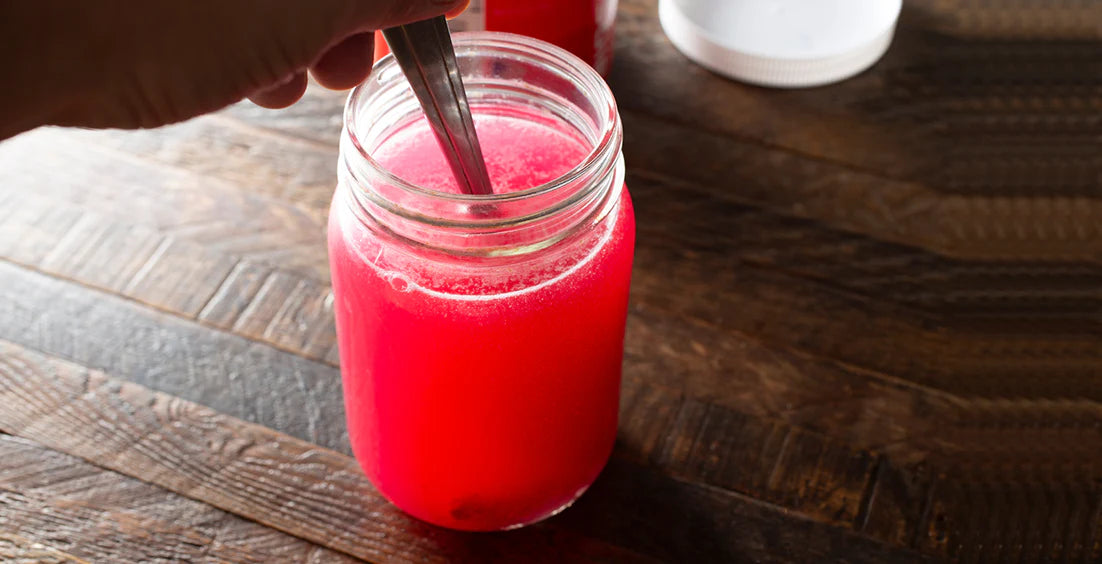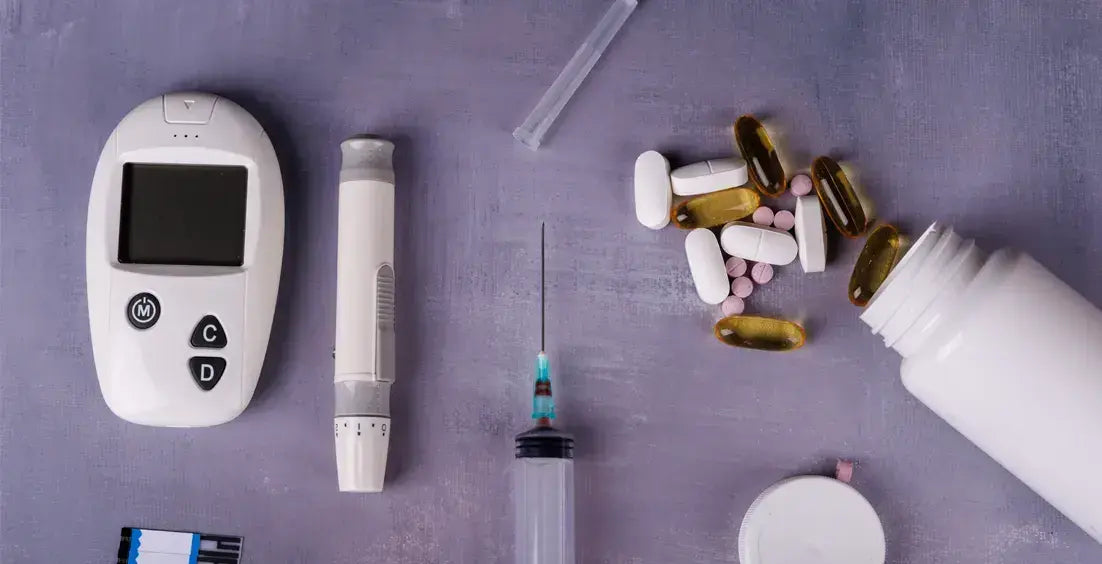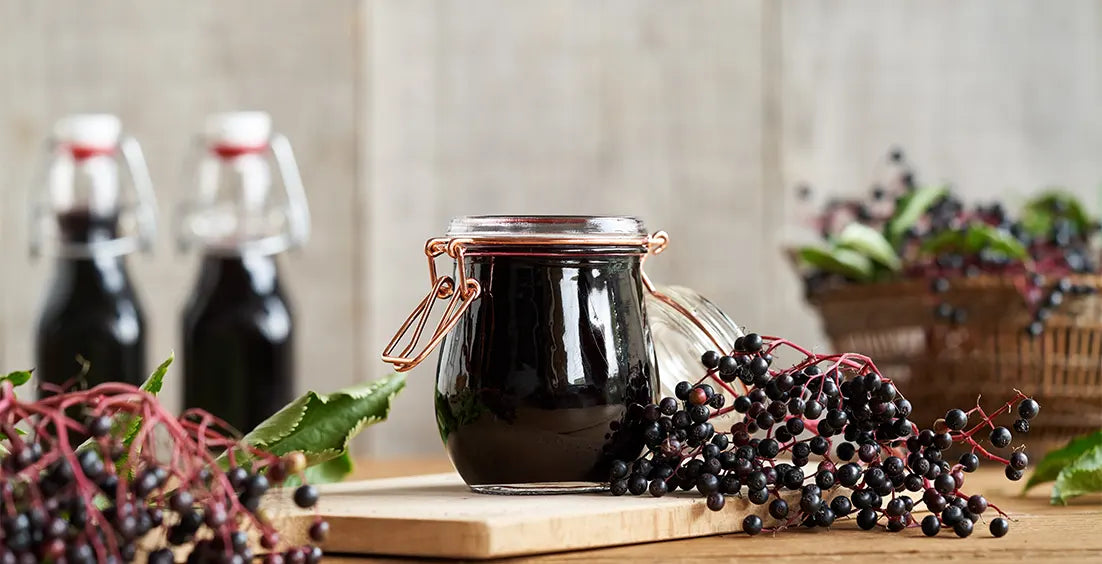When To Drink Electrolyte
Electrolytes are vital minerals you need for hydration, energy and recovery. This article explains the importance of electrolytes, when to drink electrolytes, and the best methods to keep your body fueled and hydrated.

Table of contents
Staying hydrated is essential for your health. But proper hydration goes beyond just drinking water. Electrolytes (minerals like sodium, potassium, and magnesium) are crucial for helping your body perform at its best.
Whether you’re working out at the gym, dealing with a summer heatwave, or recovering from illness, knowing when to drink electrolytes can make a big difference.
A balanced level of electrolytes can help prevent dehydration, muscle cramps, and fatigue. But how can you tell the best time to replenish them, and what’s the right way to do so?
In this article, we’ll examine the importance of electrolytes, when to drink electrolytes for maximum benefit, and the best methods to keep your body fueled and hydrated.
Ready? Let’s get started!
Key Takeaways
- Electrolytes are essential minerals that help maintain hydration, prevent cramps, and support all-round body function.
- When to drink electrolytes depends on your activity level, health, and environmental conditions.
- Consuming electrolyte water during exercise can help replenish lost minerals and prevent dehydration.
- It’s important to balance electrolytes with water intake to stay properly hydrated all day long.
What Are Electrolytes?
Electrolytes are minerals that carry an electric charge. These essential substances include sodium, potassium, magnesium, calcium, chloride, and phosphate.
They help regulate important functions in the body such as fluid balance, muscle contractions, nerve signaling, and maintaining pH levels in the blood.
When you sweat, you lose electrolytes, and this loss can lead to an imbalance in your body. This is why it’s important to replace them, especially during physical activity or in hot weather.
Taking electrolyte water and electrolyte powder are common ways to replenish these minerals and keep your body functioning properly.
Why Are Electrolytes Important?
Electrolytes help in maintaining balance and hydration in the body. These minerals help regulate the amount of water in your cells, balance your pH levels, and ensure proper nerve and muscle function. Without sufficient electrolytes, your body cannot perform these vital processes efficiently.
When you have an electrolyte imbalance, symptoms such as muscle cramps, fatigue, headaches, and dizziness may occur. These issues can become more pronounced during intense physical activity, illness, or heat exposure. This is why knowing when to drink electrolytes is very important for staying healthy and avoiding discomfort.
Keeping your electrolytes balanced helps maintain energy, prevent cramps, and support general bodily functions. This is especially important if you engage in physical activities or experience conditions that cause you to sweat and lose these minerals.
When to Drink Electrolytes
Knowing when to drink electrolytes is key to maintaining proper hydration and preventing imbalances.
Here’s a breakdown of when you should consider replenishing them:
During Exercise
When you exercise, especially during moderate to intense activity that lasts longer than 30 minutes, you lose electrolytes through sweat. To prevent dehydration and muscle cramps, it’s important to replenish those electrolytes.
Knowing when to drink electrolyte water during your workout is important. Aim to start drinking electrolytes around 15-20 minutes into your workout, especially if you're engaging in intense activity or exercising in hot conditions.
Sipping on electrolyte-rich fluids throughout your session can help maintain proper hydration and support muscle function.
After Exercise
After exercise, your body needs to recover the electrolytes lost through sweat. Knowing when to drink electrolytes after a workout is essential to aid in rehydration and muscle recovery.
Ideally, you should drink electrolyte-rich fluids within 30 minutes of finishing your workout. This helps restore fluid balance, prevent fatigue, and support muscle repair.
During Illness
When you’re sick, particularly with vomiting or diarrhea, you lose both fluids and electrolytes, and this can lead to dehydration.
It is important to know when to drink electrolytes during illness, for recovery. Drinking electrolyte water or solutions can help restore lost minerals and prevent further health issues.
Aim to drink electrolytes as soon as you begin experiencing symptoms of dehydration, and continue to hydrate regularly throughout the day.
In Hot Weather
Extreme heat increases sweating, and this means you lose electrolytes faster. When to drink electrolytes in hot weather depends on how much you're sweating.
If you're exercising outdoors or in the sun, it’s best to drink electrolyte-rich fluids before you feel thirsty. This will help prevent dehydration and heat-related issues, such as heat exhaustion.
Keep sipping on electrolyte water every 20-30 minutes to stay balanced.
After Excessive Sweating
If you’ve been sweating excessively, maybe from exercise, heat, or stress, it’s important to replenish the electrolytes your body has lost.
When to drink electrolytes after excessive sweating can vary, but it’s generally best to hydrate immediately afterward. This will help restore electrolyte balance and prevent dehydration-related symptoms like dizziness, fatigue, and cramping.
How to Replenish Electrolytes
Replenishing electrolytes is essential to maintain hydration and support the body's functions. Here are some simple and effective ways to restore the balance of these important minerals:
Dietary Sources
You can replenish electrolytes through food. Many foods are naturally rich in these minerals, which makes it easy to support your body’s needs.
Some great sources of electrolytes include:
- Bananas: Rich in potassium that helps regulate fluid balance.
- Leafy greens: High in magnesium and calcium, essential for muscle function.
- Nuts and seeds: Good sources of magnesium, support nerve function.
- Avocados: Packed with potassium, helps prevent cramps.
Electrolyte Drinks
Another effective way to replenish electrolytes is through drinks. Electrolyte water and electrolyte powder are convenient options, especially if you need quick hydration after intense exercise or illness.
Many sports drinks are formulated to replace sodium, potassium, and other key electrolytes. However, be cautious of drinks with added sugars, this can counteract the benefits.
Homemade electrolyte drinks are also an option. A simple mixture of water, a pinch of salt, and a squeeze of lemon can provide a natural electrolyte boost without the added sugars.
Water
Drinking water is equally very important. Proper hydration supports electrolyte balance and helps your body absorb and transport electrolytes effectively. Make sure to drink plenty of water all through the day, especially in combination with electrolyte powder.
READ MORE - Can You Take Magnesium and Potassium Together?
Conclusion
Electrolytes are essential for keeping your body hydrated. It prevents cramps and supports normal muscle and nerve function. Knowing when to drink electrolytes can help you stay energized and healthy during workouts, hot weather, or recovery from an illness.
You can replenish your electrolytes through food, drinks, or hydration to help balance in your body. Electrolyte water, electrolyte powder, and natural food sources like bananas and leafy greens are all effective ways to restore your electrolytes.
Remember, staying hydrated with the right balance of electrolytes helps your body perform at its best. So, if it’s before or after exercise, or simply during a hot day, make sure you’re giving your body the support it needs.
Take charge of your hydration and keep your body fueled and balanced for top performance.
About WOWMD Staff
The WOWMD Staff category features a diverse team of writers, each bringing specialized knowledge in areas such as nutrition, fitness, wellness, and more. Articles in this category benefit from insights provided by multiple experts. All content is peer-reviewed and regularly updated to ensure compliance with our editorial standards.
References
- Electrolytes: https://www.ncbi.nlm.nih.gov/books/NBK541123/
- Muscle Cramping During Exercise: Causes, Solutions, and Questions Remaining: https://pmc.ncbi.nlm.nih.gov/articles/PMC6901412/
- Water and Electrolytes: https://www.ncbi.nlm.nih.gov/books/NBK234935/
- Plasma Potassium Concentration and Content Changes After Banana Ingestion in Exercised Men: https://pmc.ncbi.nlm.nih.gov/articles/PMC3499889/
- Magnesium: https://ods.od.nih.gov/factsheets/Magnesium-HealthProfessional/
- Hass Avocado Composition and Potential Health Effects: https://pmc.ncbi.nlm.nih.gov/articles/PMC3664913/
Evidence Based Research
This WOWMD content has been reviewed, as well as checked for facts, so as to guarantee the best possible accuracy.
We follow a strict editorial policy, especially related to the sources we use. Our articles are resourced from reputable online pages, with research drawn from academic institutions and peer-reviewed studies. You can click on the numbers in the parentheses (1, 2, etc.) and check out those references.
The feedback form on this page can be used to report content that is not accurate, up-to-date or questionable in any manner.
We do NOT intend for the information presented through our articles to replace the medical relationship with a qualified physician, nor does it represent specialized advice.


 Skin Detoxification Bundle
Skin Detoxification Bundle Complete Weight Loss Bundle
Complete Weight Loss Bundle Heart Care Bundle
Heart Care Bundle Better Immunity Bundle
Better Immunity Bundle  Men's Immunity & Prostate Health Bundle
Men's Immunity & Prostate Health Bundle Stress + Energy + Wellness Combo
Stress + Energy + Wellness Combo  Energy Booster Combo
Energy Booster Combo Natural Skin Care Bundle
Natural Skin Care Bundle Workout Supplements Combo
Workout Supplements Combo Cognitive Health & Vision Combo
Cognitive Health & Vision Combo Joint Health Support Combo
Joint Health Support Combo

















 By WOWMD Staff
By WOWMD Staff